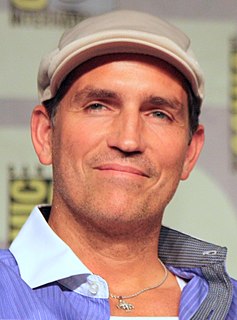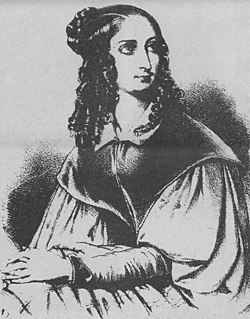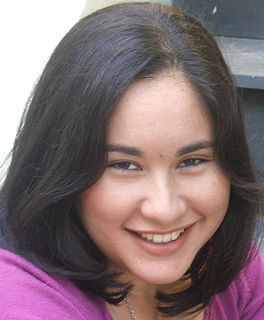A Quote by Jim Caviezel
When the mother herself kills her son she goes against her own nature, against her own instinct. People talk about 'choice', but when a woman does that, when she destroys the life of her unborn child, then we have arrived at the limit. The level cannot go higher regarding evil.
Related Quotes
My mother didn't feel sorry for herself, she was left with no child support, no alimony at a very young age, with a child to raise, a high school education and she just figured it out. She didn't complain, she didn't rely upon government, she relied upon her own skill set, her own self confidence, her own drive in moxie and her own duty to me and her and she relied upon her family and her faith.
The woman who fights against her father still has the possibility of leading an instinctive, feminine existence, because she rejects only what is alien to her. But when she fights against the mother she may, at the risk of injury to her instincts, attain to greater consciousness, because in repudiating the mother she repudiates all that is obscure, instinctive, ambiguous, and unconscious in her own nature.
Virtue and vice suppose the freedom to choose between good and evil; but what can be the morals of a woman who is not even in possession of herself, who has nothing of her own, and who all her life has been trained to extricate herself from the arbitrary by ruse, from constraint by using her charms?... As long as she is subject to man's yoke or to prejudice, as long as she receives no professional education, as long as she is deprived of her civil rights, there can be no moral law for her!
The universal nature has no external space; but the wondrous part of her art is that though she has circumscribed herself, everything which is within her which appears to decay and to grow old and to be useless she changes into herself, and again makes other new things from these very same, so that she requires neither substance from without nor wants a place into which she may cast that which decays. She is content then with her own space, and her own matter, and her own art.
Yet there were times when he did love her with all the kindness she demanded, and how was she to know what were those times? Alone she raged against his cheerfulness and put herself at the mercy of her own love and longed to be free of it because it made her less than he and dependent on him. But how could she be free of chains she had put upon herself? Her soul was all tempest. The dreams she had once had of her life were dead. She was in prison in the house. And yet who was her jailer except herself?
You cannot hammer a girl into anything. She grows as a flower does, she will wither without sun; she will decay in her sheath as a narcissus will if you do not give her air enough; she might fall and defile her head in dust if you leave her without help at some moments in her life; but you cannot fetter her; she must take her own fair form and way if she take any.
For a mother the project of raising a boy is the most fulfilling project she can hope for. She can watch him, as a child, play the games she was not allowed to play; she can invest in him her ideas, aspirations, ambitions, and values - or whatever she has left of them; she can watch her son, who came from her flesh and whose life was sustained by her work and devotion, embody her in the world. So while the project of raising a boy is fraught with ambivalence and leads inevitably to bitterness, it is the only project that allows a woman to be - to be through her son, to live through her son.
Every act of motherhood contains a dual intent, as the mother holds the child close and prepares it to move way from her, as she supports the child and stands it firmly on its own feet, and as she guards it against danger and sends it out across the yard, down by the stream, and across the traffic-crowded highway. Unless a mother can do both - gather her child close and turn her child out toward the world - she will fail in her purpose.
At the door , she made him promise to go without goodbyes .She closed the door on him . Laila leaned her back against it , shaking against his pounding fists , one arm gripping her belly and a hand across her mouth , as he spoke throughout the door and promised that he would come back for her . She stood there until he tired , until he gave up , and then she listened to his uneven footsteps until they faded , until all was quiet , save for the gunfire cracking in the hills and her own heart thudding in her belly , her eyes , her bones .
Mother is in herself a concrete denial of the idea of sexual pleasure since her sexuality has been placed at the service of reproductive function alone. She is the perpetually violated passive principle; her autonomy has been sufficiently eroded by the presence within her of the embryo she brought to term. Her unthinking ability to reproduce, which is her pride, is, since it is beyond choice, not a specific virtue of her own.
Feminism has nothing at all to do with being 'feminine.' Feminine means accentuating the womanly attributes that make women deliciously different from men. The feminine woman enjoys her right to be a woman. She has a positive outlook on life. She knows she is a person with her own identity and that she can seek fulfillment in the career of her choice, including that of traditional wife and mother.




































